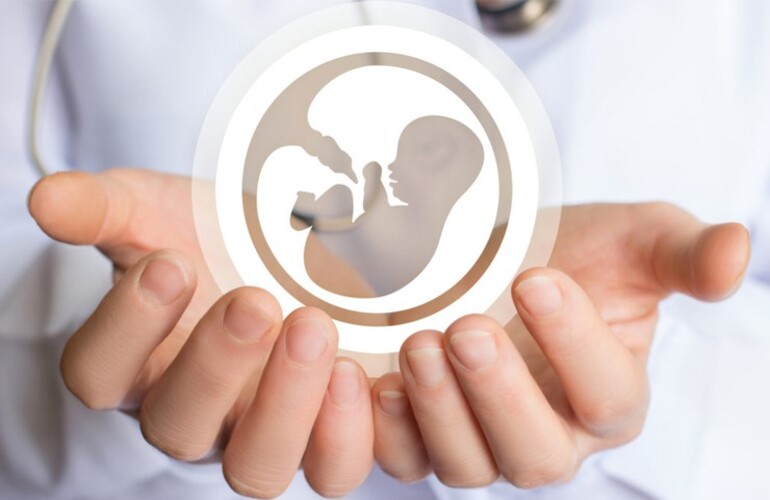The Importance of the Immune System During Pregnancy
The immune system during pregnancy undergoes significant changes to protect both the mother and the developing fetus. These adaptations are crucial for maintaining a healthy pregnancy, ensuring the fetus can grow without being rejected by the mother’s body. Understanding these immune changes is vital for supporting maternal and fetal well-being throughout this critical period.
Benefits of a Strong Immune System
Having a strong immune system is essential for overall health and resilience. It helps the body fight off harmful pathogens like bacteria and viruses, reducing the risk of infections and illnesses. A robust immune system also supports quicker recovery, allowing for less severe symptoms and faster healing when sickness occurs.
Maintaining a strong immune system through proper nutrition, regular exercise, and adequate rest is especially important during pregnancy to protect both mother and baby. These efforts bolster the body’s defenses, enhancing health throughout the pregnancy journey.
Changes in the Immune System During Pregnancy
During pregnancy, the immune system undergoes vital transformations to ensure the health of both the mother and fetus. One significant change is the suppression of certain immune responses to prevent rejection of the fetus, which carries half of the father’s genetic material. This immune tolerance allows the fetus to grow safely within the mother’s body.
At the same time, the immune system shifts to focus on promoting tolerance rather than mounting strong immune attacks. This adaptation prevents the mother’s body from attacking the developing fetus and the placenta, which provides vital nutrients and oxygen. These changes are critical for maintaining a healthy pregnancy and ensuring the baby’s development.
Understanding how the immune system adjusts during pregnancy helps healthcare providers monitor and support expectant mothers effectively, contributing to a safer and healthier pregnancy experience.
Protecting the Baby
During pregnancy, protecting the baby becomes a top priority for expectant mothers. The immune system plays a crucial role in ensuring the health and well-being of the developing fetus. It acts as a defense mechanism against harmful pathogens and helps in preventing infections that could potentially harm the baby.
Having a strong immune system is essential for protecting the baby during pregnancy. It helps in fighting off viruses, bacteria, and other harmful substances that could affect the health of both the mother and the baby. Pregnant women need to take extra precautions to support their immune system and ensure the optimal development of the baby.
By maintaining a healthy lifestyle, eating a balanced diet, staying hydrated, and getting regular exercise, expectant mothers can boost their immune system and provide the necessary protection for the baby. In addition, avoiding exposure to toxins and practicing good hygiene habits can also help in safeguarding the baby’s health during pregnancy.
Managing Immune System
During pregnancy, it is essential to manage your immune system effectively to ensure the health and well-being of both you and your baby. One way to do this is by maintaining a balanced diet that includes plenty of fruits, vegetables, and whole grains. These foods are rich in essential nutrients that can help support a healthy immune system.
Regular exercise is another important factor in managing your immune system during pregnancy. Engaging in moderate physical activity can help reduce stress levels, improve circulation, and strengthen the body’s defenses against illness. However, it is important to consult with your healthcare provider before starting any new exercise regimen.
In addition to diet and exercise, getting enough rest and managing stress are crucial for maintaining a strong immune system during pregnancy. Poor sleep and high stress levels can weaken the immune system, making you more susceptible to infections and other health issues. Finding healthy ways to relax and unwind, such as practicing yoga or meditation, can help keep your immune system in top shape.
Boosting Immune System Naturally
Boosting your immune system naturally is vital for overall health and well-being. One way to achieve this is through a healthy diet rich in fruits, vegetables, and lean proteins. Including immune-boosting foods such as citrus fruits, garlic, ginger, and yogurt can help strengthen your body’s defense system.
Regular exercise is another key component in naturally boosting your immune system. Physical activity has been shown to improve circulation and promote the production of white blood cells, which are essential for fighting off infections and illnesses. Aim for at least 30 minutes of moderate exercise most days of the week to reap the immune-boosting benefits.
Incorporating stress-reducing activities into your daily routine can also play a significant role in boosting your immune system naturally. High stress levels have been linked to a weakened immune response, so finding ways to relax and unwind, such as practicing yoga, meditation, or deep breathing exercises, can help keep your immune system strong and resilient.
Impact of Immune System on Pregnancy Complications
During pregnancy, a woman’s immune system undergoes several changes in order to accommodate the growing fetus. These changes are necessary to ensure that the baby is protected from potential threats while in the womb. However, these alterations in the immune system can also have consequences, leading to potential complications during pregnancy.
One of the main impacts of the immune system on pregnancy complications is the risk of infections. When the immune system is weakened or compromised, pregnant women are more susceptible to various infections, which can pose a threat to both the mother and the baby. Infections such as urinary tract infections, respiratory infections, and sexually transmitted diseases can lead to complications such as premature birth, low birth weight, and even miscarriage.
Additionally, an overactive immune response can also contribute to pregnancy complications. Conditions such as autoimmune diseases, where the immune system mistakenly attacks the body’s own tissues, can increase the risk of complications during pregnancy. These conditions can lead to issues such as preeclampsia, gestational diabetes, and premature labor, all of which can have serious consequences for both the mother and the baby.




